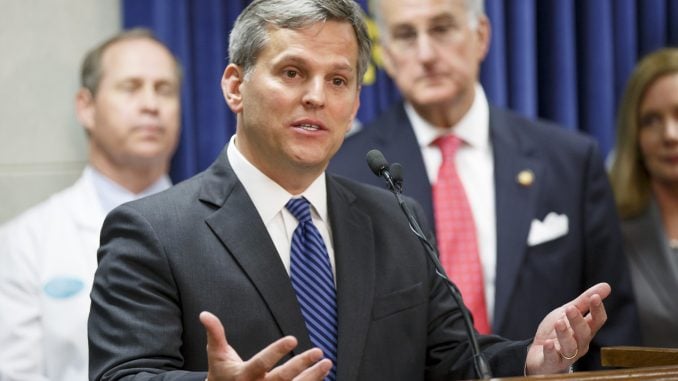
WASHINGTON, D.C. — This week lawmakers in the N.C. General Assembly filed a petition with the U.S. Supreme Court asking the court to throw out N.C. Attorney General Josh Stein’s request to dismiss their appeal over the Voter ID law.
The filing accuses Stein of ethics violations.
“The attorney general’s motion is nothing less than a politically motivated attempt to hijack a certiorari petition in a major Voting Rights Act case, in violation of the plain terms of North Carolina law and the canons of professional ethics,” the pleading reads. “When general Stein was a state senator he testified at the trial in this case, for the plaintiffs, and against the validity of the very laws the state’s certiorari petition seeks to vindicate. That thicket of conflicts of interest ought to prevent general Stein from participating as an attorney in this case at all. Much less should he be allowed to override the authority of his own client and deprive this court of the opportunity to review the 4th Circuit’s decision invalidating North Carolina’s sensible election reform laws.”
The accusations come after Stein requested last week that the U.S. Supreme Court dismiss the General Assembly’s appeal of a lower court ruling that overturned the state’s 2013 Voter ID law.
The appeal had actually been filed by N.C. lawmakers’ private counsel after then-Attorney General Roy Cooper said he would not defend the law in appeal.
Lawmakers say Stein did not consult with them before filing the request and that he does not represent them in the case. During the trial portion of the lawsuit, Stein testified for the plaintiffs as a “fact witness” in opposition to the law. According to state law, an attorney cannot act as witness and lawyer in the same case.
“It is wrong for lawyers to switch from one client side to another client’s side arbitrarily and without consent of the first client. It is a violation of the Code of Ethics — it is unethical conduct to do so,” said Gene Boyce, a Wake County attorney who has been in a long-running legal scuffle with Cooper over his 2000 election to attorney general.
Boyce’s son, Dan Boyce, won a libel suit against Cooper for his conduct during the campaign and received a public apology from the now-governor in 2014. The case has made Boyce a recognized name in the fight over ethics in the legal profession.
The legislature’s petition before the high court states that on Feb. 21, 2017, lawmakers received a letter from Stein’s office informing them that the Department of Justice would be representing them in this case. That is the same date on the petition to dismiss the case Stein filed with the U.S. Supreme Court.
In a public statement after filing the request Stein said it was in the interest of the state to dismiss the case because the plaintiffs have agreed to waive $12 million in legal fees if the petition is dismissed.
The attorney general disagrees with the arguments and believes they are without merit,” said Sarah Brewer, communications director for the N.C. Department of Justice in an email to NSJ. “Our office will wait for further direction from the Supreme Court.”
After the N.C. Voter ID law in question was passed into law in 2013, opponent groups sued over the law saying it unfairly makes it harder for the poor and minorities to vote by requiring photo ID when casting a ballot, garnering national media attention.
In August 2016, a federal district court upheld the law saying it did not violate the Constitution or the Voting Rights Act of 1965 (VRA). However, the 4th Circuit Court of Appeals reversed that decision and found VIVA to be in violation of the Equal Protection Clause of the Constitution and the VRA. Legislators then asked the U.S. Supreme Court to weigh in.
Sen. Phil Berger (R-Rockingham) and Speaker Tim Moore (R-Cleveland) argue that Stein’s actions reflect Cooper’s priorities when he was attorney general.
“It is no surprise that Roy Cooper is again attempting to pick and choose which laws he has to follow, but this latest maneuver to undermine the clients in this case and leave the defense of voter ID to an attorney general with a conflict of interest and a personal and political bias against it is a step too far. … That’s why we’ve asked the Supreme Court to reject their unethical stunt,” said Berger and Moore in a statement Thursday.
The high court was initially scheduled to review the NCGA’s petition on Friday, March 3, but it was rescheduled after the flurry of legal filings over the past week.



